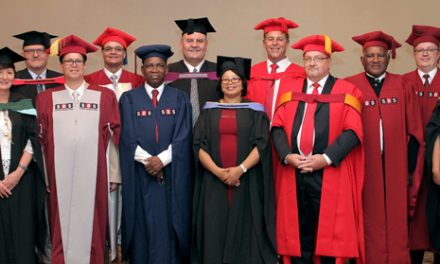
Analysts optimistic about mining
The outlook for the mining industry is generally positive, although some downward risks still exists, says the senior manager of research and development at FNB, Daniel Motinga.
He says the risk will mainly come from the slow down in the Chinese economy which has a deflationary effect on commodity prices. The second risk will come from domestic sources such as industrial action at some of the major mines.
Independent economist, Klaus Schade said that he expects output from diamond mining to stay the same as last year while copper production will increase after the resumption of copper mining at Ojtihase and Matchless mines last year. Motinga, however believes a significant share of the mining sector’s contribution to GDP will probably come from the uranium subsector. He said while it is difficult to quantify the full benefit of uranium to the economy at this stage, he estimates that uranium output will increase by around 10% this year.
Schade, like Motinga is optimistic about the increase in uranium production, compared to last year’s low production which was largely as a result of the adverse weather conditions and industrial action. He says uranium production is also expected to increase after the completion of Stage 3 of the expansion of the Langer Heinrich Uranium Mine.
Although mining companies have been hit by the fuel increments effected since the beginning of the year, Motinga said mining companies are taking out fuel hedges to manage this risk. “On a positive note, we are seeing a decline in international oil prices which bodes well for energy/fuel intensive producers,” he says
To ensure that Namibia continues to be globally competitive, the FNB economist suggests that the country needs to provide a conducive and welcoming investment climate. Schade also says that it is important to provide investors with a stable and predictable policy environment.
“We need therefore to engage the business community through their associations in the development of new policies to maintain a conducive policy environment,” he advises. Schade reasons that macro-economic stability and fiscal discipline remains Namibia’s biggest assets despite relatively high budget deficits currently owing to expansionary budgets.
He says the constant upgrades of our infrastructure, transport, communication, energy and water will ensure that we stay competitive.
“The link to the West African Cable System will improve our communication infrastructure, the planned expansion of the Walvis Bay harbour will ensure that the port can handle all incoming and outgoing shipments efficiently.”
Schade stresses on the need to improve the skills of the local workforce in order to attract more investment and the need to start investing into skills that will be required by offshore gas and oil exploration companies if they discover deposits.
“We need to look into our labour laws and balance workers protection and workers rights with the degree of flexibility and labour productivity expected by investors.”










































